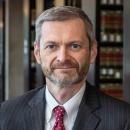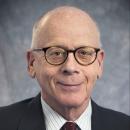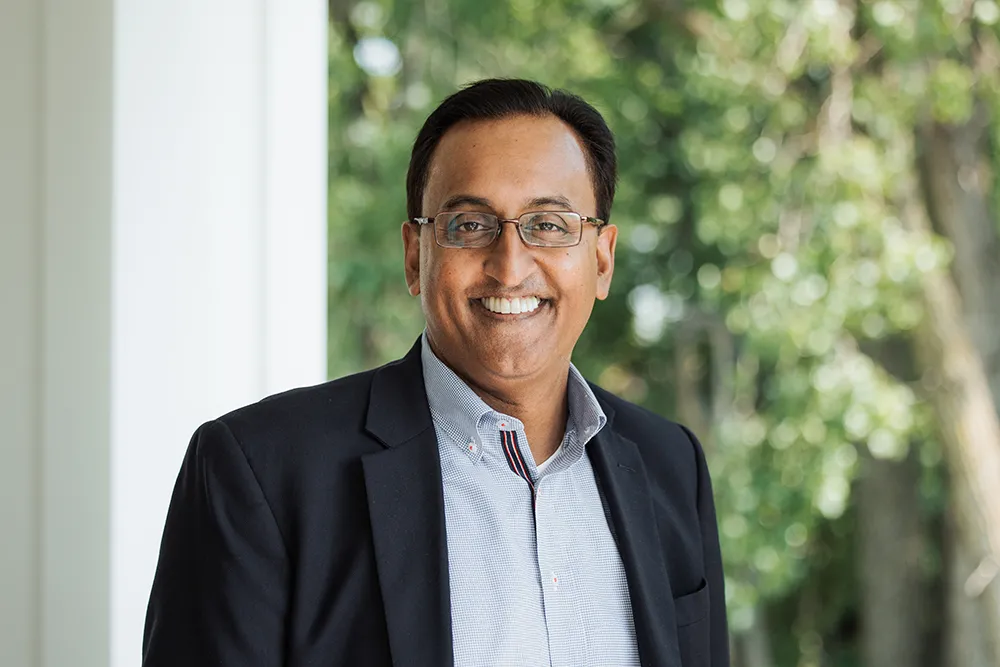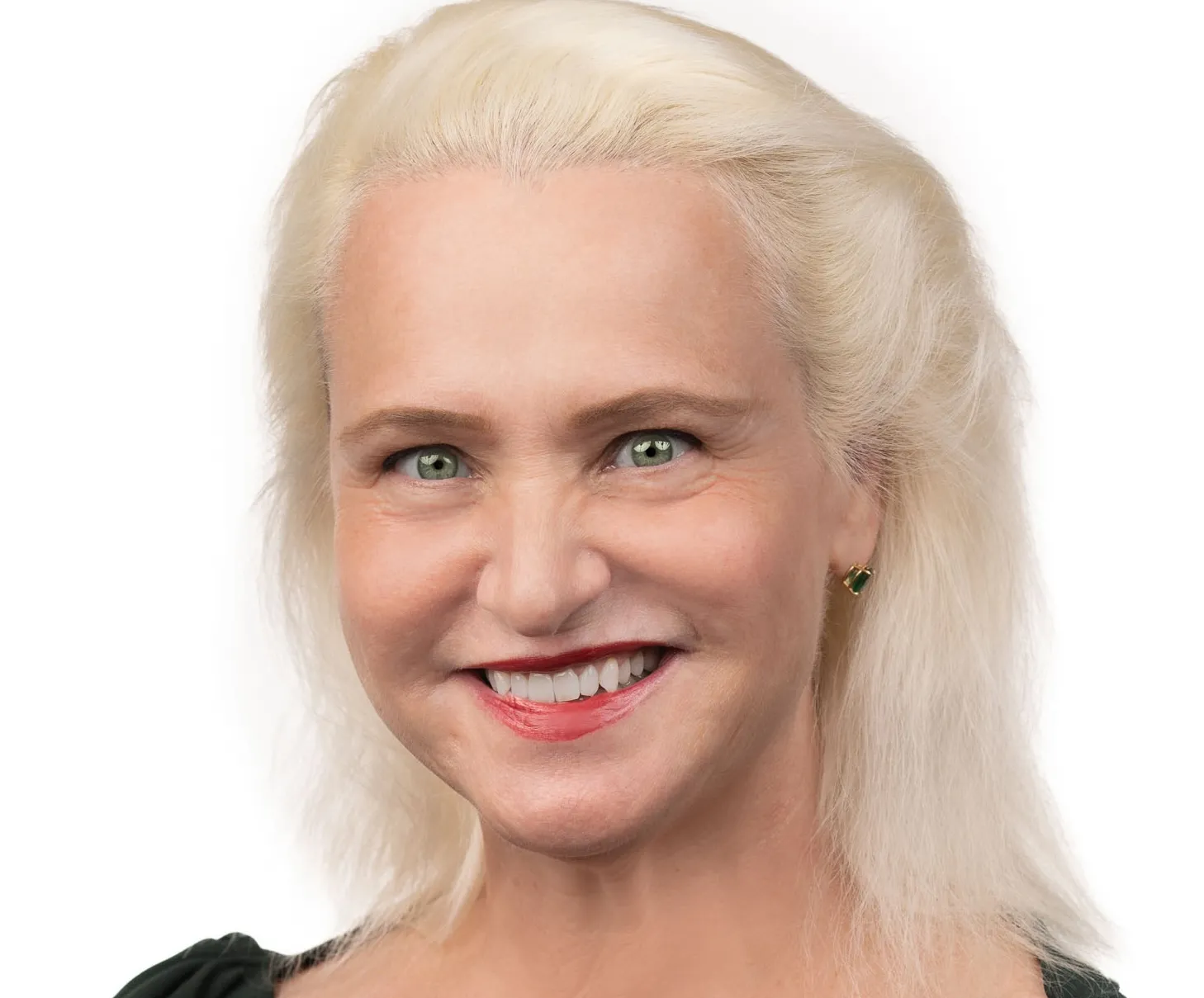Abner Mikva, '51, Law School Clinical Faculty Member, 1926-2016
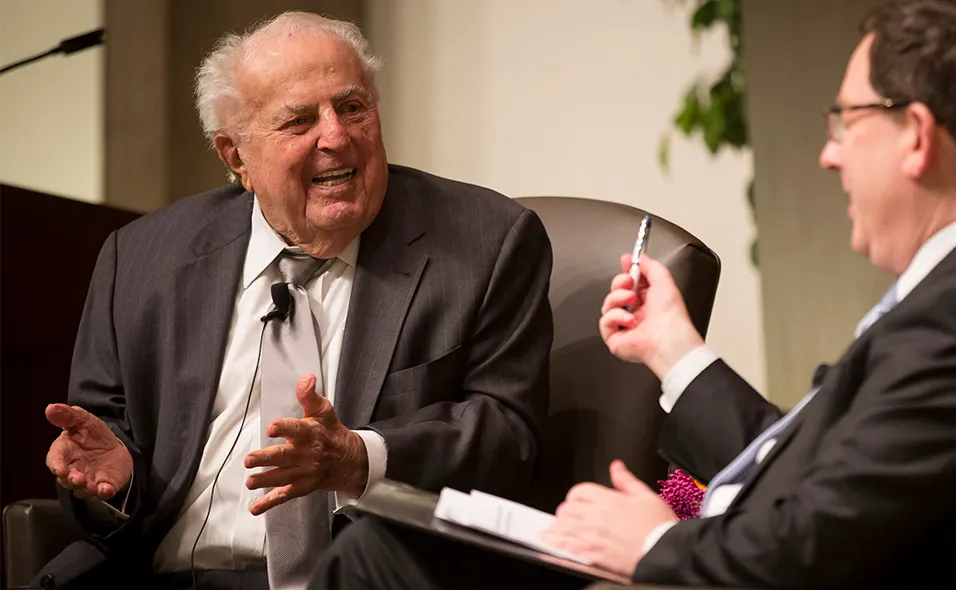
Abner Mikva, '51, one of the few Americans to serve in senior positions in all three branches of the federal government, passed away on July 4, 2016. He was 90. Mikva taught courses in legislative process at the University of Chicago Law School for many years and served as Senior Director and Director of the Appellate Advocacy Project at the Mandel Legal Aid Clinic.
“Abner Mikva was the Law School graduate who clearly embodied public service," said Thomas J. Miles, Dean of the University of Chicago Law School. "Through his work in government and his teaching at the Law School, he encouraged younger people to join him in his important and honorable work. It is no surprise that he mentored a future President and had a future Supreme Court Justice as one of his law clerks. His legacy will inspire future generations of Law School graduates to make our government and laws better.”
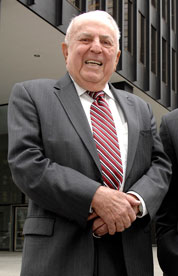 A native of Wisconsin, Mikva graduated from Washington University at St. Louis and served with the Army Air Corps in World War II. He graduated from the University of Chicago Law School in 1951, where he served as Editor-in-Chief of the University of Chicago Law Review. Mikva clerked for Justice Sherman Minton of the United States Supreme Court, then practiced law with the firm that would later become known as Goldberg, Devoe, Shadur & Mikva.
A native of Wisconsin, Mikva graduated from Washington University at St. Louis and served with the Army Air Corps in World War II. He graduated from the University of Chicago Law School in 1951, where he served as Editor-in-Chief of the University of Chicago Law Review. Mikva clerked for Justice Sherman Minton of the United States Supreme Court, then practiced law with the firm that would later become known as Goldberg, Devoe, Shadur & Mikva.
"I first met Ab Mikva in 1971 when I was a student at the Law School and he was a member of Congress," says Geoffrey Stone, '71, Edward H. Levi Distinguished Service Professor of Law. "I had invited him to speak at the Law Review's annual banquet. In preparation for that event, I rummaged around in the Law Review files to see if I could come up with something interesting about Ab's tenure as Editor-in-Chief twenty years earlier. I discovered a gem. The then dean of the Harvard Law School sent the deans of other law schools that did not have a law review of their own a letter inviting the students at those other institutions to subscribe to the Harvard Law Review for a modest fee. When then-Dean Edward Levi received the letter, he was amused, because Chicago had had its own law review for many years. He passed the letter on to Ab Mikva, inviting him to respond. Ab wrote back to the Harvard dean, 'Thank you so much for your generous offer, but the University of Chicago has a quite distinguished law review of its own. But your proposal raises an interesting possibility. Perhaps we should merge our two law reviews and create a single law review that would clearly dominate over all competitors. I know there might be a problem about the name, so I suggest a simple solution: We use the first half of our name and the second half of yours. Hence, the new journal would be known as the University of Chicago Law Review.' Ab's political skills were already evident."
In 1956, he began his life of public service by winning election to the Illinois House as a Democrat. In Springfield, he fought for fair housing and against corruption in the state welfare system, helping to reform both the Illinois criminal code and the state's mental health facilities. He was first elected to the United States House of Representatives in 1969, and served eight years from two different districts, including Hyde Park.
In 1979, President Jimmy Carter nominated Mikva for the federal appeals court in the District of Columbia. Mikva served on the DC Circuit for sixteen years, the last three of which as Chief Judge. He authored more than 300 judicial opinions. During this time, Judge Mikva played himself, albeit as "Supreme Court Justice Abner Mikva," in the 1992 movie Dave, featuring prominently on screen swearing in a new President.
Judge Mikva left the bench in 1994 at the request of President Bill Clinton, who appointed him to the position of White House Counsel. He served two years before moving back to Chicago to start the first of his many retirements.
It was then that Mikva first began to teach at the Law School. "It was such a memorable experience having Judge Mikva for Legislative Process," said Adam Bonin, '97, one of Mikva's first students in the course and now an election law attorney in Philadelphia. "There's no substitute for the real-world experience he had. The stories he told were amazing, and he was always so generous with his time."
Mikva was appointed Senior Director of the Law School's Mandel Legal Aid Clinic by Dean Saul Levmore, and he headed the Clinic's Appellate Advocacy Project. His clinic took on only the most difficult appellate cases, and Mikva pushed his students to find questions worthy of appeal. In a 2008 article about his retirement from the Clinic, Julie Avetta, ’05, who is now an appellate attorney with the US Department of Justice, said, “Judge Mikva is my hero. I had the great fortune to be the first person invited into the clinic solely to argue sentencing remands. Seventh Circuit sentencing law was coming into being right before my eyes. Under Judge Mikva's tutelage, I had the opportunity to help define it. And I hadn't even graduated law school yet.” Traci Beeck Berquam, '06, another of his Clinic students, said, "He never treated the students like we were taking up his time. Judge Mikva gave his time, his wisdom, and his guidance, both joyfully and selflessly."
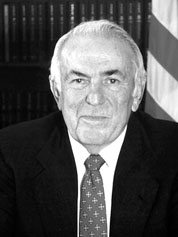 "Ab Mikva was a role model for us," said Levmore, now William B. Graham Distinguished Service Professor of Law. "He was an original social justice warrior, always on the lookout for causes and for things that did not feel right. He had an excellent sense of the power and limits of the judiciary and of politicians, and made the most of his own experience in these sectors. Every time I sent a student to him with an idea, the student emerged inspired and determined to pursue the project in question. I think it was Ab’s energy and enthusiasm that propelled those around him."
"Ab Mikva was a role model for us," said Levmore, now William B. Graham Distinguished Service Professor of Law. "He was an original social justice warrior, always on the lookout for causes and for things that did not feel right. He had an excellent sense of the power and limits of the judiciary and of politicians, and made the most of his own experience in these sectors. Every time I sent a student to him with an idea, the student emerged inspired and determined to pursue the project in question. I think it was Ab’s energy and enthusiasm that propelled those around him."
While at the Law School, Mikva befriended and mentored a young lecturer named Barack Obama. In November 2014, Mikva's protégé bestowed upon Mikva the Presidential Medal of Freedom, the nation's highest civilian honor. He called it the "greatest thing that ever happened to me."
In 1997, Mikva and his wife, Zoe, started the nonprofit Mikva Challenge, a civic leadership program for young people which encourages them to get involved in political issues and campaigns. In 2014, in honor of Mikva's long career in public service, the Kanter Family Foundation established the Mikva Fellowship Program Fund at the Law School to support a one-year postgraduate public interest law fellowship.
"He was smart as a whip, generous of spirit, and dedicated to the public good," said Stone. "Our nation needs more leaders like him."
In addition to his wife Zoe, Mikva is survived by three daughters, Mary and Laurie Mikva, and Rachel Mikva Rosenberg; and seven grandchildren.
